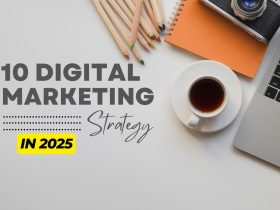Foxysales.com – B2B (Business to Business) refers to transactions, interactions, and operations that take place between two businesses, as opposed to business-to-consumer (B2C) models. Whether it’s a manufacturer selling to a wholesaler or a software company serving enterprises, B2B operations form the backbone of global commerce. From tech giants to supply chain services, understanding B2B (Business to Business) processes is crucial for companies aiming to grow in competitive markets.
In this article, we’ll dive into the world of B2B, exploring examples of leading B2B companies, strategies for success, and characteristics of top-performing businesses. Whether you’re new to B2B or looking to refine your approach, this guide offers actionable insights.
What is B2B (Business to Business)?
At its core, B2B (Business to Business) encompasses any business interaction where products or services are sold from one company to another. This can include:
- Software-as-a-Service (SaaS) providers offering tools like CRM platforms.
- Manufacturers supplying raw materials to factories.
- Wholesalers providing inventory to retailers.
Unlike B2C, where the end goal is to sell to individual consumers, B2B companies focus on building relationships and delivering value to other businesses.
Examples of B2B Companies
Tech Powerhouses
Some of the world’s most prominent technology companies operate in the B2B sector. Examples include:
- Salesforce
Salesforce provides customer relationship management (CRM) software to businesses worldwide, helping them manage customer interactions and data efficiently. - SAP
Specializing in enterprise software, SAP helps companies streamline operations, manage supply chains, and handle financials. - Microsoft Azure
Azure is a cloud computing service catering to businesses by offering solutions like virtual servers, AI tools, and storage.
Supply Chain Experts
B2B companies also thrive in logistics and supply chain management. For example:
- UPS Supply Chain Solutions offers customized logistics and distribution services to businesses of all sizes.
- FedEx Logistics supports international shipping, warehousing, and trade compliance.
Manufacturing Leaders
Manufacturers are quintessential B2B companies, often supplying materials or products to other businesses. For instance:
- Boeing sells aircraft to airlines worldwide.
- Intel supplies processors to computer manufacturers like Dell and HP.
Consulting and Professional Services
Many firms, such as McKinsey & Company, PwC, and Deloitte, provide advisory services exclusively for other businesses.
Strategies for Successful B2B (Business to Business) Companies
To thrive in the competitive B2B landscape, companies must adopt effective strategies. Let’s explore key approaches:
1. Build Long-Term Relationships
Unlike B2C, where transactions may be one-time, B2B relies on ongoing relationships. Companies should prioritize trust, reliability, and mutual benefit. Strategies include:
- Personalized communication through account managers.
- Dedicated customer support for enterprise clients.
- Consistently delivering value through high-quality products or services.
2. Invest in Digital Transformation
The B2B landscape is rapidly evolving, with digital tools playing a pivotal role. Companies that embrace technology gain a competitive edge. Examples include:
- Leveraging CRM software like Salesforce to manage leads and customers.
- Implementing eCommerce platforms for seamless B2B ordering.
- Using analytics to forecast trends and optimize inventory management.
3. Adopt a Customer-Centric Approach
Understanding the unique needs of clients is vital. B2B companies must tailor their solutions, providing flexibility and customization. For example:
- Offering subscription-based pricing models.
- Developing scalable products for companies of various sizes.
4. Leverage Content Marketing
Educational content can position a B2B company as a thought leader. Examples include:
- Publishing whitepapers on industry trends.
- Hosting webinars and workshops for professional development.
- Maintaining a blog to address client pain points.
5. Focus on Data-Driven Decision-Making
Top-performing B2B companies rely on data to refine their strategies. Collecting, analyzing, and acting on insights helps businesses identify opportunities and improve processes.
Characteristics of Top-Performing B2B (Business to Business) Companies
What sets successful B2B companies apart? Here are some defining traits:
1. Customer-Centric Culture
Great B2B companies align their goals with their clients’ success. By anticipating needs and providing proactive solutions, they earn loyalty and long-term partnerships.
2. Operational Excellence
Streamlined operations and efficient supply chains are critical. Top companies invest in automation, workforce training, and advanced logistics to ensure smooth delivery of products and services.
3. Innovation and Adaptability
B2B companies that innovate stay ahead of the curve. Examples include:
- Developing new products to meet emerging demands.
- Embracing sustainable practices to align with client priorities.
4. Strong Branding and Reputation
A strong brand instills confidence. Successful B2B firms often showcase case studies, testimonials, and certifications to build credibility.
The Future of B2B (Business to Business)
The future of B2B is exciting, with trends like artificial intelligence, blockchain, and IoT (Internet of Things) shaping the industry. Key developments to watch include:
- AI-Powered Personalization: Automating client interactions for tailored experiences.
- Sustainability Initiatives: Incorporating green practices to meet corporate social responsibility goals.
- Evolving Buyer Expectations: As millennials and Gen Z take decision-making roles, the demand for tech-driven, seamless solutions is growing.
Conclusion
B2B (Business to Business) is a dynamic and diverse industry, offering immense opportunities for growth. From tech giants like Salesforce to supply chain leaders like UPS, the world of B2B is rich with innovation and collaboration. By adopting customer-centric strategies, embracing technology, and focusing on long-term relationships, businesses can thrive in this competitive space.
Whether you’re starting a B2B venture or refining your existing operations, the insights and strategies outlined in this guide provide a roadmap to success. As the industry evolves, staying ahead of trends and maintaining adaptability will be crucial.










